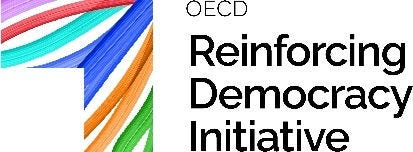Informed individuals are the foundation of democratic debate and society. The accelerated spread of false or misleading information, often through deliberate disinformation campaigns by domestic or foreign actors, creates confusion and exacerbates polarisation, distorts public policy debates, and further deteriorates trust in government. In a fast-moving information landscape re-shaped by digitalisation, strengthening the integrity of information spaces and combating disinformation are thus urgent to strengthen the social fabric of open societies and reinforce democracy.
Against this backdrop, developing a comprehensive set of policies for governments to help ensure that individuals can access diverse, timely, well-researched, and fact-checked information is imperative. Yet, in addition to ensuring that governments can play such a constructive, yet not intrusive, role in meeting the ambition of reinforcing information integrity while safeguarding the independence and variety of content production, all actors in the information ecosystem need to shoulder responsibilities. To that end, a multi-stakeholder approach is required to address this complex global challenge.
The report Facts not Fakes: Tackling Disinformation, Strengthening Information Integrity presents an overview of policies that have been designed and implemented with the aim of supporting information integrity. This report explores the importance of taking a comprehensive approach, tailored to country contexts, that emphasises the need to create an environment for reliable information to thrive. It recognises that democracies are based on free expression and open and informed debate, and that actors must work together to meet these global challenges.
The report presents an analytical framework that focuses on three complementary policy aims: (i) enhancing transparency, accountability, and plurality of information sources; (ii) fostering societal resilience to disinformation; and (iii) upgrading governance measures and institutional architecture to uphold the integrity of the information space.
This report benefitted from extensive collaboration with the Steering Group and Expert Group on Public Governance Responses to Misinformation and Disinformation, who shared their good practices and experiences to advance toward greater integrity in the information space and drive implementation in their own countries. The report was approved and declassified for publication by the OECD Public Governance Committee via written procedure on 29 February 2024.

